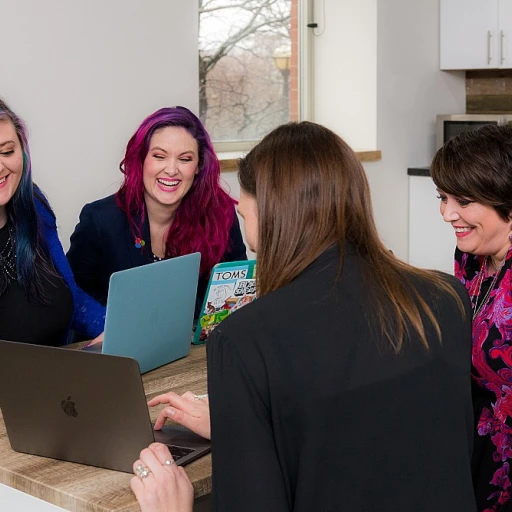
Defining a Working Interview
Exploring the Fundamentals: A Closer Look at Working Interviews
The concept of a working interview has become a significant tool in the hiring process, standing distinct from traditional job interviews. But what exactly does it involve, and why are employers increasingly warming up to this approach? Simply put, a working interview is an innovative method that provides potential employers the opportunity to assess candidate skills in a practical arena rather than relying solely on theoretical discussions or resumes.
In a working interview, candidates don’t just talk about their capabilities; they perform the job duties in real-time, which helps in gauging their practical skills and experience. It's a hands-on practical exercise where tasks related to the job are executed in a real work environment, offering a more comprehensive understanding of how a candidate might fit into company culture or handle patient interactions in dental settings, for instance.
As both candidates and companies continue to evolve with the dynamic landscape of labor markets, working interviews serve as a vital component in the assessment process. Employers see it as an effective means to minimize the risks associated with bad hires. During a working interview, a potential employer can observe how a candidate applies their knowledge, adjusts to new tasks, and interacts with colleagues, ultimately aiming to assess their fit beyond what a typical interview might reveal.
Employers are also adapting their interview process to ensure it reflects their company’s privacy policy and maintains a high standard of performance evaluation. This type of interview can be particularly beneficial in roles requiring specific, hands-on skills, such as in a dental job where a direct assessment of candidates performing patient-related tasks can be highly insightful.
In conclusion, understanding the basics of what working interviews entail sets the stage for deeper discussions on how continuous learning plays an essential role, which will be further explored in subsequent sections where we'll delve into preparing for a working interview and the broader implications for the future.
The Role of Continuous Learning in a Working Interview
The Integral Role of Continuous Learning in Assessing Candidates
Continuous learning plays a pivotal role in the dynamics of a working interview by enabling candidates to demonstrate their adaptability and growth potential. Unlike the traditional job interview format, working interviews prioritize a candidate's skills and ability to perform real-life tasks. This approach not only assesses the immediate candidate skills but also highlights the candidate's potential for growth within the company culture. In the context of a dental practice or any patient-centered work environment, for instance, continuous learning is crucial. The candidate's ability to effectively manage job duties and adapt to the specific demands of the practice can decisively influence their success in the working interview process. Employers look for signs of proactive learning behaviors, especially when evaluating candidates perform tasks that require specialized knowledge and experience. Moreover, through working interviews, potential employers gain a more nuanced understanding of what to expect from a candidate in real work scenarios. It allows them to assess how a candidate responds to questions working on their feet and handling unexpected job interview challenges. This can significantly impact the decision-making process regarding the candidate's long-term fit and potential compensation. Therefore, continuous learning is not just an asset—it is essential in today's job landscape. Ensuring candidates possess a mindset of continuous improvement and adapting to new situations greatly affects their chances of success in working interviews. For further insights on how continuous learning can maximize a candidate's potential and align with company growth strategies, consider exploring this resource: Maximizing Potential Through Human Resource Development. In conclusion, continuous learning is seamlessly interwoven with the concept of working interviews, offering both employers and candidates a dynamic framework to shape their professional journeys.Preparing for a Working Interview
Tips to Successfully Prepare for a Practical Job Tryout
Preparing for a working interview can be a daunting task for candidates who may not know what to expect. Unlike traditional job interviews, a working interview requires candidates to demonstrate their skills in a real work environment. Here are some practical tips to navigate this process successfully:- Research the Company: Understanding the company culture and values is essential. Aligning yourself with the company's expectations can give you a significant edge during the interview process.
- Enhance Relevant Skills: Before the working interview, review the job duties and skills that the potential employer is assessing. This preparation will help you perform the tasks more confidently and accurately.
- Professional Attire: Dress appropriately for the working environment you will be entering. This demonstration of professionalism reflects well on your ability to assimilate into the company culture.
- Understand Compensation: Clarify the terms of compensation during the working interview. Ensure that you discuss this with the employer beforehand to avoid any misunderstandings.
- Engage Actively: During the working interview, communicate effectively with team members. This interaction showcases your ability to work collaboratively in a job setting.
- Ask Questions: Don’t hesitate to ask questions regarding the tasks or the company’s procedures. It shows your interest in understanding and fitting into the role.
- Reflect on Experience: Post-interview, take the time to evaluate your performance and consider areas for improvement as part of your continuous learning journey. This introspection helps you grow professionally.
Employer's Perspective: Conducting a Working Interview
Conducting a Working Interview: A Strategic Approach
For employers, conducting a working interview is an opportunity to assess candidate skills in a real-world context. This process allows potential employers to evaluate how candidates perform job duties beyond the traditional interview process. By observing candidates in action, employers can gain insights into their work ethic, problem-solving abilities, and how well they fit into the company culture.
When planning a working interview, employers should clearly define the tasks and expectations. This ensures that both the employer and the candidate understand what the working interview will entail. It is crucial to communicate the job duties and any specific skills that will be assessed during the interview. This transparency helps candidates prepare effectively and reduces any ambiguity about the role they are being considered for.
Balancing Evaluation and Experience
Employers must strike a balance between evaluating candidates and providing them with a meaningful experience. While the primary goal is to assess candidate skills, it is also important to create an environment where candidates can showcase their abilities without undue pressure. This approach not only benefits the employer but also enhances the candidate's experience, making them more likely to view the company positively, regardless of the outcome.
Additionally, employers should consider the logistics of the working interview. This includes determining the duration, compensation, and any privacy policy considerations. For instance, in fields like dental care, where patient interaction is involved, ensuring compliance with privacy regulations is essential. Clear communication about these aspects can prevent misunderstandings and foster a positive interview experience for both parties.
Questions to Consider
- What specific skills and tasks will the candidate be expected to perform?
- How will the company ensure that the working interview aligns with its privacy policy?
- What measures will be taken to provide feedback to the candidate post-interview?
By addressing these questions, employers can conduct working interviews that are both effective and respectful of the candidate's time and effort. This strategic approach not only aids in selecting the right candidate but also reinforces the company's commitment to continuous learning and development.













